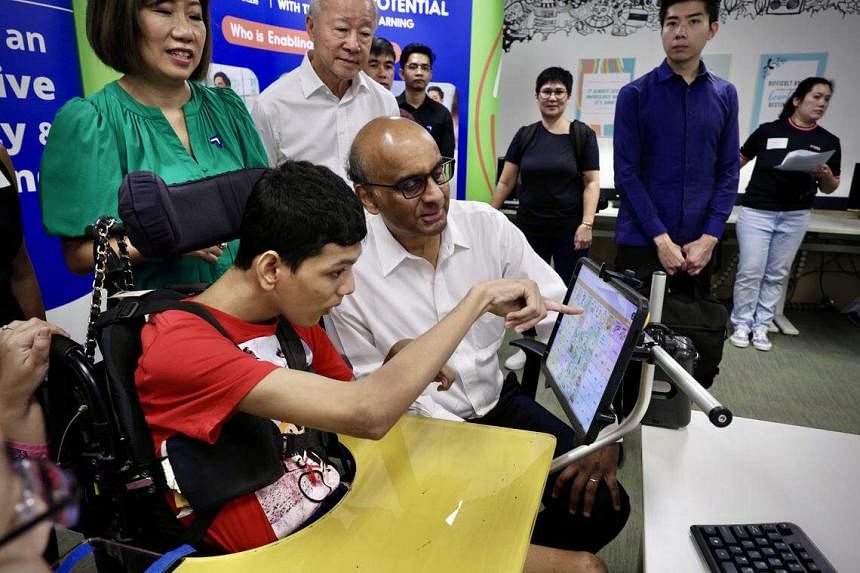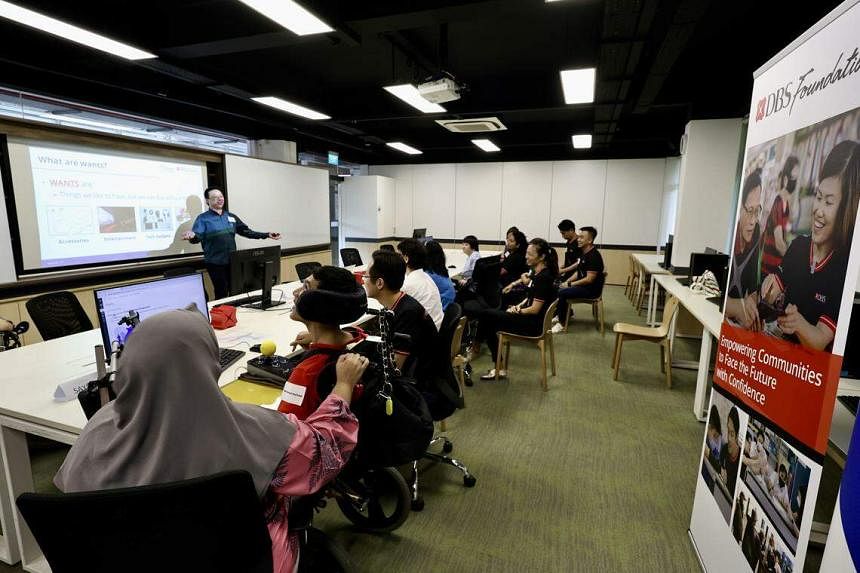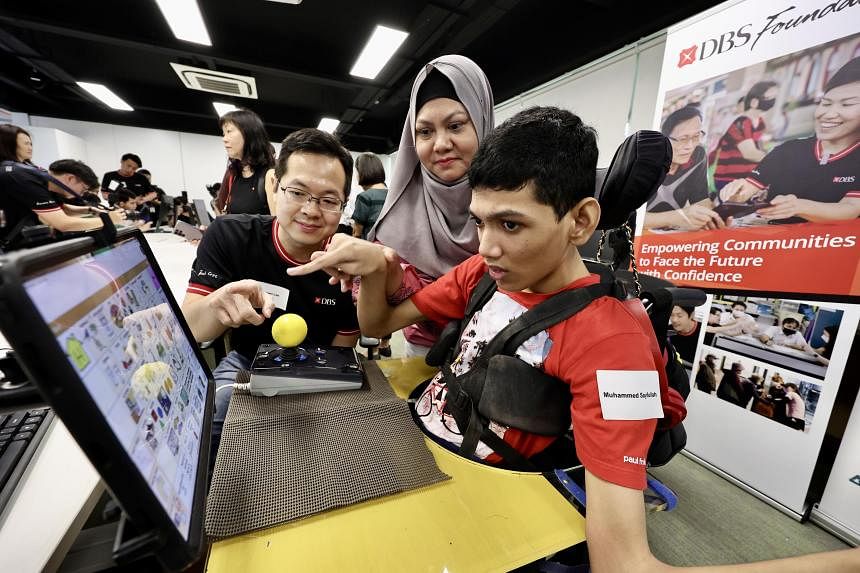SINGAPORE - Some 6,500 people with disabilities and their caregivers will be taught how to budget and better manage their money under a new initiative by DBS Foundation and SG Enable. They will also learn about topics such as digital banking and scam awareness.
Equipping them with these financial and digital literacy skills will help them live more independently and have greater access to social and economic opportunities, said the two organisations in a statement on Nov 21.
DBS Foundation will contribute $1 million to the initiative, which aims to reach some 6,500 people with disabilities and their caregivers over three years, starting from 2024.
The statement noted that based on focus groups held by SG Enable – the focal agency for disability in Singapore – 80 per cent of people with disabilities surveyed had pointed out that digital and financial literacy skills, which are essential for daily living, are not covered in existing training programmes.
At the Enabling Academy Learning Festival held in August, over 50 per cent of people with disabilities and their caregivers who attended expressed interest to learn about topics, such as the concept of money and savings, cashless payments and digital banking.
As part of the new initiative, DBS Foundation and SG Enable, will jointly develop a customised learning road map that caters to diverse learning needs. There will be up to 30 modules for participants to choose from.
The road map, which will be launched in 2024, will support people with varying disabilities such as autism and intellectual, physical and sensory disabilities. Caregivers are also encouraged to attend the workshop, as some may not be digitally or financially literate themselves.
The programme will cover basic financial concepts such as budgeting, money management and insurance, and teach participants how to apply these concepts in digital banking, online security and scam awareness, among other topics.
Scenario planning, such as the issue of long-term financial security in the event of the caregiver’s death, may also be incorporated.
The workshops will be available via different channels such as in-person sessions near where participants live and work, as well as e-modules.
DBS Foundation and SG Enable will also work together to develop resource guides, toolkits and course materials for trainers, caregivers, special education schools and others in the disability ecosystem, to equip them with knowledge on how to support people with disabilities in their learning.
The initiative was launched on Nov 21 at the Enabling Village in Lengkok Bahru by President Tharman Shanmugaratnam, accompanied by his wife, Ms Jane Ittogi.

They interacted with four people with disabilities and their caregivers, who took part in a pilot workshop that day.
SG Enable chief executive Ku Geok Boon said: “The partnership between DBS Foundation and SG Enable comes at a time when the world becomes more digitally driven and persons with disabilities are vulnerable to being left behind.”
Ms Karen Ngui, head of group strategic marketing and communications at DBS and board member of DBS Foundation, said the initiative will empower and enable people with disabilities to face the future more confidently by tackling existing knowledge gaps.
Mr Muhammed Sayfullah, 20, who has cerebral palsy and uses a wheelchair, attended the pilot workshop on Nov 21 with his mother Siti Fadillah Mohamed Noor, 45. He uses an assistive technology tool to communicate.
Madam Fadillah, a housewife, said she currently manages his money for him but hopes that he can one day do it on his own.
“He has learnt to count money and can recognise the different Singapore currency (denominations),” she added.

But due to his mobility challenges, it is difficult for him to make payments while out.
“He will usually wave the card to the cashier, so they know he wants to use it to pay, but also not everyone takes card or digital payments,” she said, adding that Mr Sayfullah, who is very tech-savvy, wants to have a smartwatch for easier payment.
At home, the environment has been configured to have a smart lock, lights and fans – all devices that Mr Sayfullah had pushed for after seeing them on television, which have helped him to live more independently.
While Mr Sayfullah knows how to use a food delivery app, his mother said he is currently not allowed to use it on his own as he might end up making too many orders.
She hopes that such apps can come with a setting to control the amount of money that can be spent daily.
“It would also be helpful if there were less information on the interfaces, so it is not overwhelming, as well as bigger icons,” she said.


